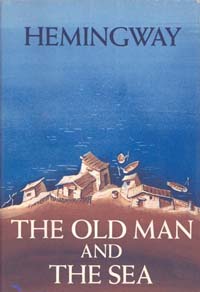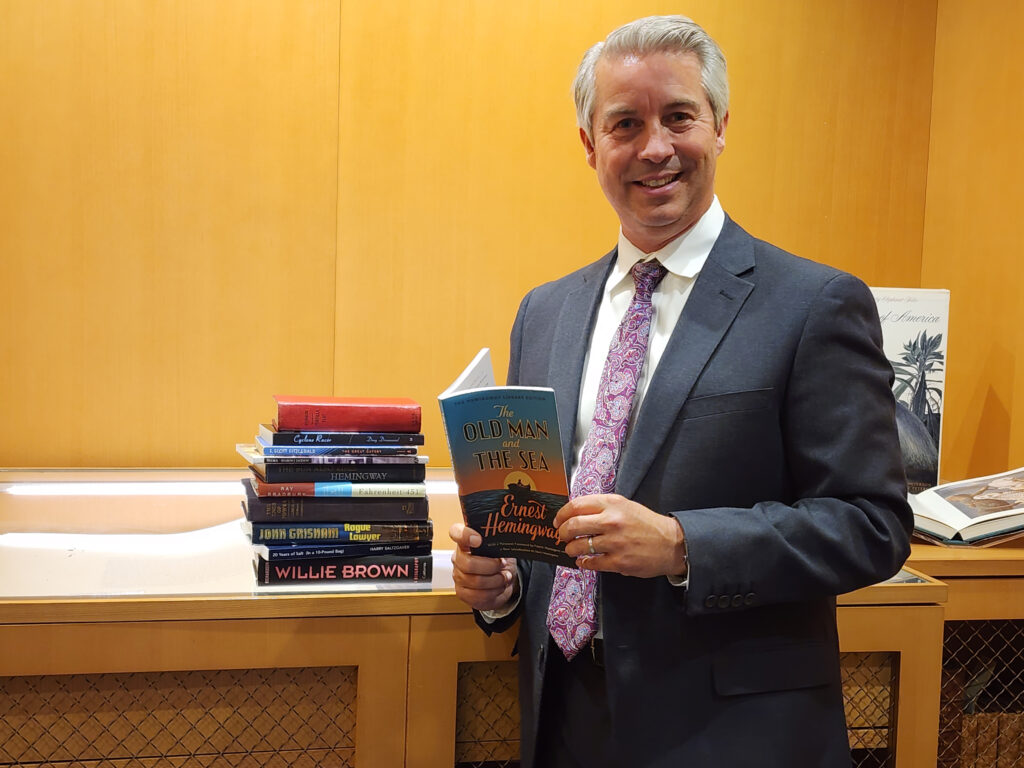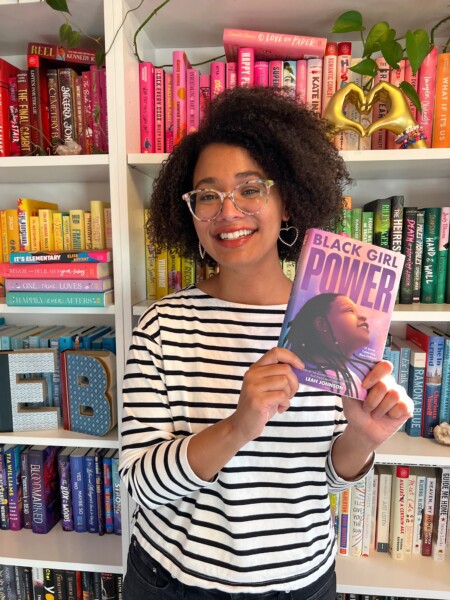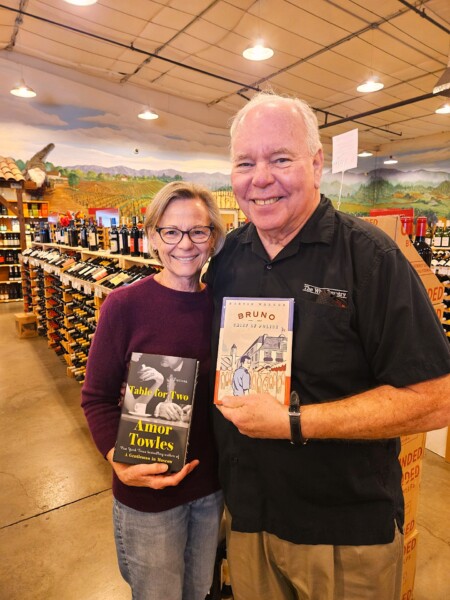Top leaders of the world have the exceptional simple habit of reading. Whether for enjoyment or enrichment, reading stimulates the mind and fuels creativity. Long Beach Leaders are Readers features leaders in our community as they share their recommended reads.
In June, we spotlight Doug Haubert, the Long Beach City Prosecutor known for his innovative gang prevention strategies and advocacy for alternative sentencing programs. As a father, Doug found a renewed love for reading through bedtime stories with his son. He shares his profound connection with literature, specifically The Old Man and the Sea by Ernest Hemingway. Discover how this classic novel rekindled his love for reading, offering timeless insights into human resilience, friendship, and the simple joys of life.

The Old Man and The Sea
by Ernest Hemingway
Meet Doug Haubert:

What made you choose The Old Man and the Sea as your book recommendation?
The Old Man and the Sea was the first book I read as an adult when I decided to return to reading. My mother-in-law, Kathy, gave my son Alice in Wonderland, the original version. He was too young to read it himself, so I read it to him every night and realized this is a story for grownups. The themes and constant play on words were definitely for adult readers. I started to enjoy our bedtime ritual as much as my son, wondering if I was missing out – maybe the classics we were told to read (but never wanted to) in our younger years were actually meant for us as adults.
After that experience, starting with The Old Man and Sea, I started binge reading the classics. They are considered great for a reason, Ernest Hemingway, Willa Cather, John Steinbeck, Jack London, Victor Hugo, and others, they don’t just write great stories, they capture the human condition in a way that is timeless.
The Old Man and the Sea is a tender, but sad story about a very old, very poor fisherman, Santiago, who goes through a long dry spell where he cannot catch a fish for months. Then he hooks the fish of a lifetime, a giant Marlin, and most of the book is the struggle between Santiago and the Marlin.
Santiago is the underdog, and you cannot help but cheer for him. You want him to break his dry spell with a record catch.
I also loved the book because of the relationship between Santiago and a boy, Manolin, who clearly loves and respects Santiago. They talk about baseball and the way I used to talk to my grandfather about baseball.
I had just finished The Old Man and the Sea when Kathy passed away unexpectedly. She was only 59. I took my son to the Belmont Pier and shared the news with him. We took a place on a bench and cried for a while, then we just sat, looking out at the deep, dark ocean.
What do you hope other readers get from reading your book recommendation?
I intentionally picked a book that most people have heard of, but have never read or perhaps have not read recently. One might have read it in high school, or were supposed to read it (hey, there’s a reason for CliffNotes).
As I mentioned, after reading Alice in Wonderland, I read The Old Man and the Sea, then I started binging on books considered classics. I was in my late 30’s and had not read for fun in many, many years, but now I was returning to the library each week until I had read virtually everything on TIME Magazine’s “All TIME 100 Novels.”
The Old Man and the Sea is a short, easy read. I hope people read it again, as an adult. If people like it, maybe they will start to re-read other classics, like The Pearl, by John Steinbeck, or Death Comes for the Archbishop, by Willa Cather. They are short, sweet stories that a teenager might skim through just enough to pass a literature class, but an older reader might find deeper meaning.
I would be curious if anyone discovers what I discovered. That most of the books we consider old classics are more enjoyable and more profound if we read them as adults, and are actually pretty relevant to our lives still.
How relevant or relatable are the themes or messages of the book to your own life, or to society today?
In modern times it seems that status, money, fame, influence, power, are the things by which we judge people and expect to be judged by others. Just think of what you see on social media. Our society has never had more material wealth, and yet been less happy.
Santiago may be poor, but he has friendship in Manolin. The old fisherman is not fishing for money. He is not trying to catch a great fish for fame or glory. He is fishing because that is what he is, a fisherman. He, along with the boy, Manolin, are very poor, but there is no mention of having to catch fish to survive. In fact, when the story begins Santiago has just had 84 days without a catch. He feels 85 is a lucky number so he goes out again.
The story is about struggling and persevering, not giving up, not complaining about bad things that happen to us. The story is also about friendship. The book is timeless and there are life lessons that should keep our minds off material things so we can focus on what really matters.
Were there any stand-out scenes or particular passages from your recommended book that have impacted your life?
There are two things that I will always remember about this book. First, it is the friendship between Santiago, the very old fisherman, and Manolin, the apprentice. Manolin wants to fish with Santiago, but his parents won’t let him because Santiago is “unlucky.”
Manolin takes care of the old fisherman man and brings food to his room. They talk about the Yankees and Joe DiMaggio. “I would like to take the great DiMaggio fishing,” the old many said. “They say his father was a fisherman. Maybe he was as poor as we are and would understand.”
Even if you do not recognize names like Joe DiMaggio, Dick Sisler, John McGraw and Leo Durocher, you will be touched by the relationship between Manolin and the old man.
The second part I will never forget is when Santiago is heading back to shore with the Marlin on the line. Due to its size, the Marlin can’t be brought into the boat, and this eventually attracts the attention of sharks. I don’t want to give away too much, but you can only imagine that Santiago had enough to overcome, and now he has to fight off sharks coming after his prize fish.
Hemingway is known for his dialogue, but since most of the book is about the struggle between Hemingway and the Marlin, Santiago either talking to himself, or talking to fish and birds around his boat. Here’s one example: “Fish,” he said, “I love and respect you very much. But I will kill you dead before this day ends.”
How did your recommended book make you think or feel about a certain topic or issue?
No matter how bad things get in my life, I still have it easier than the old fisherman, Santiago. Sometimes we forget how good we have it.
How old were you when you got your first library card?
Probably 9 years old
Has a book ever changed your life?
Yes, but too many to list and all for different reasons. The late-in-life binging that started in my late 30's was a period of personal growth for me. I would not have run for City Prosecutor if that experience never happened.
Do you prefer paperbacks or e-books?
I don’t own an e-reader. Maybe someday I will get on that bandwagon because it's more practical. I still prefer books, whether paperback or hardcover. I admit I also prefer newspaper to online, but I seem to get all my news online these days.
Is there an author you’d like to meet? Can you share their name or work?
John Grisham. His life story is fascinating to me. Everyone knows his legal thrillers, but there's one called Playing for Pizza that is totally different.
Did someone read to you when you were a child?
I do not recall being read to as a child, but I liked books when I was a kid. I was a high energy child, always playing sports, but on Saturdays our local library had programming for kids, so I would get dropped off at the library with my brother. I was about 9 or 10 years old.
Really, though, I stopped reading when I started to be given reading assignments. If I had to read, it wasn’t as much fun. I read a lot in college and law school, but it wasn’t for pleasure. In fact, many years had passed before I started to read for fun again, in my late 30's.
What are your favorite genres to read?
Fiction.
Where is your favorite place to read? Outside? Local coffee shop? On vacation?
I love to read on vacation, in fact, when I am going to travel somewhere I will usually find a novel set in that location. For example, I read The Descendants right before I went to Kauai.
What’s the last book you read?
I have been reading Malcom Gladwell recently. I read Outliers, then Blink, now I am finishing The Tipping Point. This is unusual for me because I love fiction, especially fiction with some history, legal and political accuracy.
What book will you read next?
I still need to read Sparring Partners, by John Grisham, so that will probably be next. But I'm always looking for recommendations!
If you wrote a memoir, what would the title be?
City Prosecutor – because the most interesting part of my life (up to this point) has happened during my time as the City Prosecutor.
Why do you think reading is important?
It’s been said that all learning is self-taught. The written word is a form of art that can take us to different time periods and places in the world, and beyond our world. The act of translating letters into words, and words into thoughts, is unique, and there are parts of the brain that are stimulated only by reading.
Doug Haubert, Long Beach City Prosecutor

Doug Haubert is a skilled attorney with 24 years of experience as a civil and criminal prosecutor. He was elected Long Beach City Prosecutor in 2010, and re-elected in 2014, 2018 and 2022.
As City Prosecutor, he started Long Beach’s Gang Prevention Strategy, a three-part approach to reducing gang activity through intervention, rehabilitation, and enforcement of gang court orders. He is also recognized as a national leader in court diversion and alternative sentencing programs for low-level, first-time offenders. One of his programs, the Long Beach Community Service Worker (CSW) program, was named “Best Neighborhood Program” in America by nonprofit organization Neighborhoods, USA.
City Prosecutor Haubert received his B.A. in Political Science from U.C. Santa Barbara, and his Juris Doctorate With Distinction from University of the Pacific, McGeorge School of Law. He has served on many local boards and commissions, including the California State Bar Public Law Executive Committee, the Long Beach Public Library Foundation, and Goodwill Industries of Southern Los Angeles Board of Directors, WomenShelter of Long Beach, and Mothers Against Drunk Driving (MADD) of Southern California. He is currently the President of the Los Angeles County Prosecutors Association.
Learn more on the City Prosecutor website.
Find “The Old Man and the Sea” at your local library branch by clicking here!



